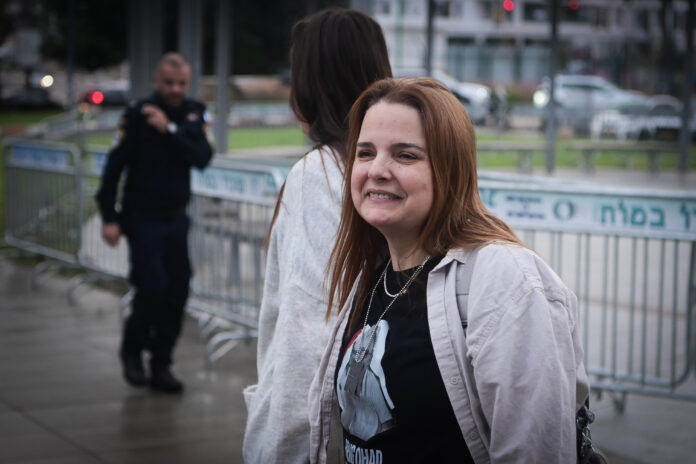|
Getting your Trinity Audio player ready...
|
(TJV NEWS) Raz Ben Ami, a 57-year-old German-Israeli hostage, has initiated legal proceedings against the International Committee of the Red Cross (ICRC), alleging the organization’s abandonment of its responsibility toward Israeli hostages held captive by Hamas.
Raz Ben Ami speaks about her time as a hostage of Hamas:
“I was in Gaza and they humiliated us…In terms of food, it was one meal a day. There was no such thing as a shower – only cold water that we poured over ourselves. In the bathroom there was no way to flush the toilet… pic.twitter.com/BKBa5vND9S
— Aviva Klompas (@AvivaKlompas) December 16, 2023
The lawsuit underscores a historical pattern of perceived inhumanity by the ICRC toward Jews and points to the rejection of numerous appeals from Ben Ami’s family to send essential medication for her reported battle against brain tumors during her 54-day captivity. Tragically, while Ben Ami was eventually released, her husband Ohad remains captive, having been abducted with her from Kibbutz Be’eri.
The legal action contends that the ICRC failed to adhere to its mandated responsibilities, including visiting Israeli hostages in Gaza, ensuring their safety, and actively participating in efforts to secure their release. The Shurat Hadin organization is representing Ben Ami in this legal pursuit, and the critique extends beyond the alleged negligence to accusations of bias on the part of the ICRC.
Nitsana Darshan-Leitner, the founder and President of Shurat HaDin, has drawn parallels between the current situation and the dark period of the Holocaust, accusing the ICRC of repeating past mistakes by abandoning the Jewish people during one of their most challenging historical periods. She vehemently asserts that such disregard for human life cannot be tolerated solely on the basis of the victims’ Jewish identity.
Ben Ami’s two months in captivity are described as an ordeal, marked by unbearable conditions. She reveals the harsh realities faced by her and fellow hostages, including a lack of essential medicines in Gaza and the distressing scarcity of basic necessities. Ben Ami discloses that, at one point, a Hamas member informed her, “We don’t have your medicine anymore.” Furthermore, she sheds light on the daily humiliation endured by hostages, from being provided with just one meal a day to the unhygienic living conditions, where pouring water over one’s head serves as the only semblance of a shower, and non-functioning toilets exacerbate the mental and physical strain.
In light of these allegations, the legal action seeks accountability from the ICRC for its perceived failure to uphold its humanitarian obligations and responsibilities towards Israeli hostages held in captivity. The broader implications of this case echo concerns about the impartiality and efficacy of international humanitarian organizations in addressing crises and safeguarding the well-being of those affected.




